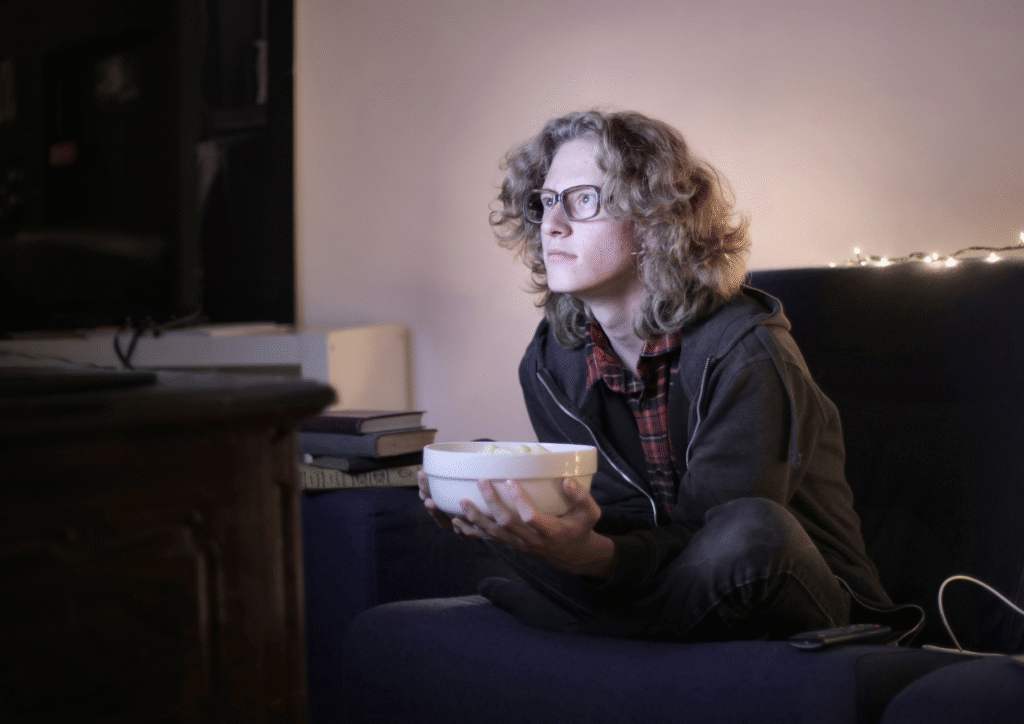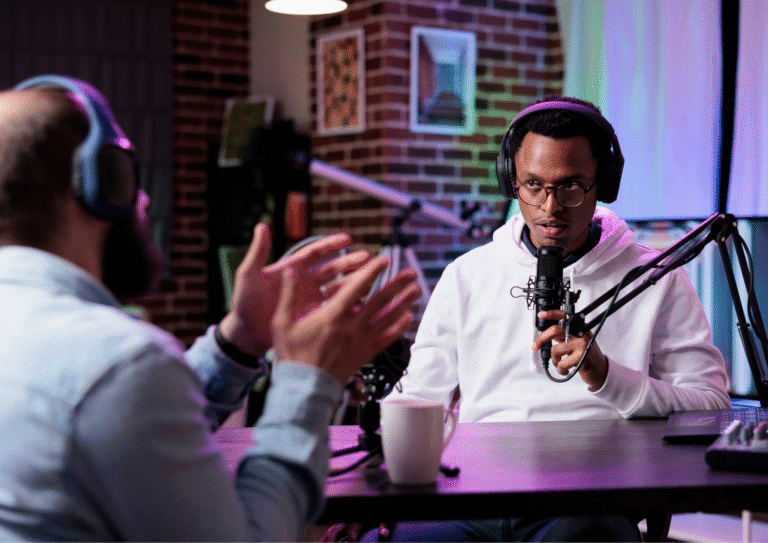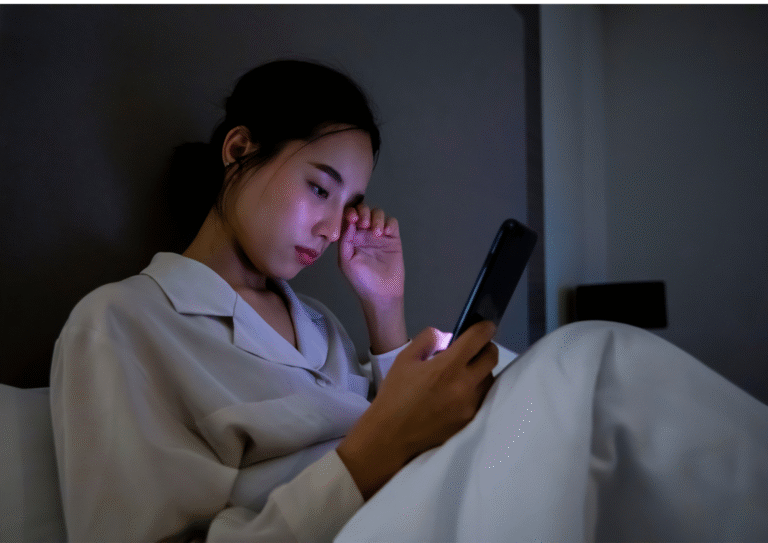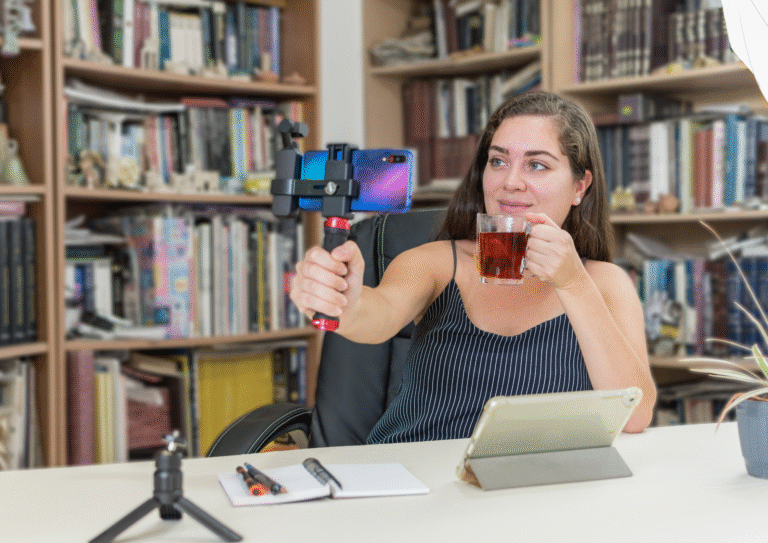
Learn about the hidden signs of burnout, like feeling totally drained even when you’re not super busy. Find out why it’s more than just being tired and how to truly recover for better mental health.
What Burnout Really Feels Like . , . And Why It’s Not Just for Workaholics
Have you ever felt tired even after getting a full night’s sleep? Like every single task, even something simple like brushing your teeth, feels much heavier or harder than it should? If so, you’re not just “lazy” or “unmotivated.” You might be experiencing something called burnout.
What’s even trickier about burnout? You don’t have to be someone who works all the time, often called a “workaholic,” to get it. Many people think burnout only happens to really ambitious people or those who work 80 hours a week. But burnout is sneaky . , . it can slowly creep into your life even if you’re a stay-at-home parent, a college student with lots of homework, or even someone who manages social media and feels stressed out behind the screen.
So, why does this happen? And more importantly . , . what can we actually do about it?
Why Burnout Matters More Than We Think
Burnout isn’t just about feeling tired or having too much to do. It’s a serious condition that affects your mind and body. The World Health Organization (WHO), a global health group, even recognizes it as an official problem. Burnout has three main parts:
- Exhaustion: This isn’t just physical tiredness. It means feeling completely drained emotionally, mentally, and physically. You have no energy left.
- Cynicism or detachment from work or life responsibilities: This means you start to feel negative, uncaring, or disconnected from your job, school, or even your everyday duties. Things you used to care about might suddenly seem pointless.
- Reduced performance or feelings of inadequacy: You might start doing less well at tasks, or you might just feel like you’re not good enough, even if you’re trying really hard.
But here’s the problem: people often misunderstand burnout, and it’s not diagnosed enough. This is especially true for people who aren’t in what we usually call “high-stress” jobs. For example, a report from the American Psychological Association (APA) in 2021 found that burnout rates went way up. It wasn’t just health workers who felt it, but also students, people who work for themselves (freelancers), and even unemployed people who felt like they weren’t achieving “enough.” [1] This shows that burnout can hit anyone, no matter what they do.
“I’m Not Even That Busy, So What’s Wrong With Me?”
This is one of the most common things people say when they’re experiencing burnout. And it’s also one of the most damaging thoughts, because it can make you feel even worse. There’s a common belief that burnout only affects people who are always trying to do more and achieve more. But that’s not true. In real life, burnout can happen to anyone who:
- Feels powerless over their situation: You feel like you have no control over what’s happening to you, or that you can’t change things.
- Lacks support or recognition: You don’t feel like anyone is helping you, or that your efforts are seen and appreciated.
- Is stuck in a loop of meaningless, repetitive tasks: You’re doing the same boring things over and over, and they don’t feel important or useful.
- Spends emotional energy managing stress (not just doing “work”): A lot of your mental power goes into just dealing with stress, worry, or difficult feelings, rather than actually getting tasks done.
Even people without a job . , . yes, even if you’re just endlessly scrolling on your phone . , . can feel totally drained. You don’t need to be busy with a job to be burned out. You just need to feel stuck, overwhelmed, or like you have no control.
“Burnout is what happens when you try to avoid being human for too long.”
— Michael Gungor
A Quick Reality Check: Burnout Isn’t Depression, But It’s Close
Some experts argue that burnout and depression overlap so much that we should treat them in similar ways. But there’s a big, important difference:
- Depression is an “all-encompassing” feeling. This means it affects every part of your life. You lose interest in everything, even the things you used to love. You might not want to hang out with friends or do your favorite hobbies.
- Burnout, on the other hand, is usually task-specific. This means it mostly affects you when you’re trying to do certain tasks or responsibilities. You might still enjoy spending time with friends or watching TV. But the moment you open your email for work or start cooking dinner, that heavy, drained feeling hits you like a wave.
Still, it’s very important to know that if burnout isn’t treated, it can get worse and turn into clinical depression (a serious form of depression that needs professional help). That’s why spotting the signs of burnout early on is so important.
What Burnout Actually Feels Like (Real Examples)
To help you really understand what burnout feels like, here are some real-life stories:
- Amira, a freelance designer: “I love what I do. But even when I had no clients and wasn’t busy, I still felt guilty for resting. The guilt was like my new job.”
- Jonah, a college student: “I would study for hours and hours, but I wouldn’t remember anything. Then I’d feel like a total failure. It didn’t matter how much I tried. I felt completely stuck and unable to move forward emotionally.”
- Marissa, a stay-at-home mom: “Everyone kept saying how lucky I was to stay home with my kids. But I felt like I was disappearing. Like if I just walked out the door, no one would even notice I was gone.”
In each of these stories, the main problem wasn’t how much work they had. Instead, it was a deep feeling of being emotionally depleted (completely empty of feelings and energy) and a lack of meaning or purpose in what they were doing.
Dark Humor Interlude:
There should totally be a “burnout badge” . , . like those rings you see on fitness trackers. Imagine it popping up: “Congrats! You haven’t felt joy in 30 days. You’ve unlocked emotional toast mode.” Ha!
Burnout Recovery Isn’t About a Spa Day
Let’s be real . , . you can’t just take a bubble bath or go to a spa to fix burnout. While influencers on social media might post about drinking special “gut health” smoothies or taking relaxing “forest baths” as cures, these are only surface-level fixes. They don’t get to the real, deeper problem. As mental health therapist Amelia Nagoski says in her book Burnout:
“Burnout isn’t cured by self-care. It’s cured by completing the stress cycle.”
— from Burnout: The Secret to Unlocking the Stress Cycle [2]
What does “completing the stress cycle” mean? It means you actually need to process your emotions and release the stress that’s built up inside you. It’s not just about putting a soothing mask on your face; it’s about dealing with the deep-seated feelings.
Things Influencers Get Very Wrong About Burnout (Especially Around “Gut Health”)
Let’s look closely at a popular trend: influencers suggesting that burnout is just a problem with your gut health (your digestive system). They might make claims like:
- “Heal your gut and you’ll never feel tired again!”
- “Burnout equals toxins in your digestive system!”
This kind of advice is harmful pseudoscience. Pseudoscience means ideas or claims that seem scientific but aren’t actually based on real, proven science. While it’s true that there’s a connection between your gut and your brain, the idea that burnout can be fixed just by drinking kombucha (a fermented tea) or taking probiotics (good bacteria for your gut) is completely misleading. Not only that, it can stop someone from seeking the real help they need for their mental health.
In fact, a review published in Frontiers in Psychology in 2022 warned that many wellness trends often make complex mental health issues seem too simple. They also mentioned that if someone follows these wellness plans and doesn’t “feel better,” it can make them feel even more ashamed or like it’s their fault. [3]
The truth? You can eat all organic food, sleep 8 hours every night, and still experience burnout. That’s because emotional exhaustion isn’t fixed by food alone. It’s a problem that involves your mind, your relationships with others, and the larger systems around you (like school, work, or family life).
So, How Do You Heal From Burnout?
It’s not easy . , . but it is definitely possible. Real burnout recovery means dealing with the main reasons you got burned out, not just trying to fix the symptoms (like being tired).
- Acknowledge you’re burned out. The first step is to admit to yourself that you’re experiencing burnout. Trying to pretend it’s not happening will only keep you stuck.
- Talk to someone. Don’t keep it to yourself. Talk to a therapist, a trusted friend, a family member, or a coworker. Just don’t isolate yourself (cut yourself off from others).
- Reduce obligations. This means learning to say “no” to new tasks or invitations. Cancel things you don’t have the energy for. Reschedule commitments. Give yourself permission to do less.
- Do things that complete your stress cycle: This is about releasing built-up stress from your body and mind. Good ways to do this include:
- Exercise: Moving your body can help release stress hormones.
- Crying: Allowing yourself to cry can be a powerful way to let out emotions.
- Laughter: Genuine laughter can reduce stress and improve your mood.
- Deep breathing: Slow, deep breaths can calm your nervous system.
- Creative expression: Doing something creative like drawing, writing, or playing music can help process feelings.
- Rediscover autonomy. Autonomy means feeling like you have control over your own choices. Even small decisions, like choosing what you eat for dinner, can help you feel more in charge of your life.
- Change your environment if possible. Sometimes, the place you are . , . like your job or school . , . is the main cause of your burnout. If you can, explore options to change your environment.
This Explainer on Burnout Shows Why Recognizing Emotional Exhaustion, Not Just Overwork, Is Crucial
Burnout isn’t something to be proud of or a sign that you’re working hard. It’s a serious warning sign . , . a big red light flashing that says, “You need to be a human again. You need to rest and take care of yourself.”
Final Thoughts: Your Pain Is Real . , . And You’re Not Alone
Whether you’re a busy lawyer, a student overwhelmed by exams, or a tired parent just trying to keep your family together, burnout is not a sign that you are flawed or weak. It’s a state of being completely drained that deserves attention, kindness, and real solutions . , . not just a special herbal tea.
You don’t have to “earn” rest. You don’t need to hit rock bottom and feel absolutely terrible to ask for help. And most importantly . , . you don’t need to “prove” you’re burned out to anyone.
If what you read here felt true to your experience, your next step might be the simplest and hardest of all: pause. Take a moment to reflect. And gently remind yourself: simply being human is enough.
📚 Sources Used:
- American Psychological Association (APA). “Stress in America 2021: Stress and decision-making in a new reality.” Published 2021. https://www.apa.org/news/press/releases/2021/10/stress-in-america-decision-making
- Nagoski, Emily & Amelia. Burnout: The Secret to Unlocking the Stress Cycle. Ballantine Books, 2019. (This book explains completing the stress cycle.)
- Frontiers in Psychology. “Wellness Culture and Its Impact on Mental Health.” Published June 2022. https://www.frontiersin.org/articles/10.3389/fpsyg.2022.909015/full




